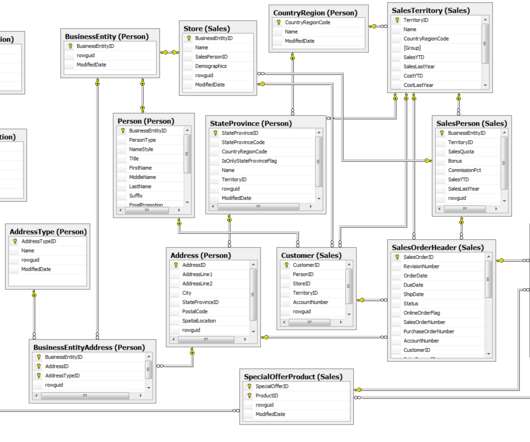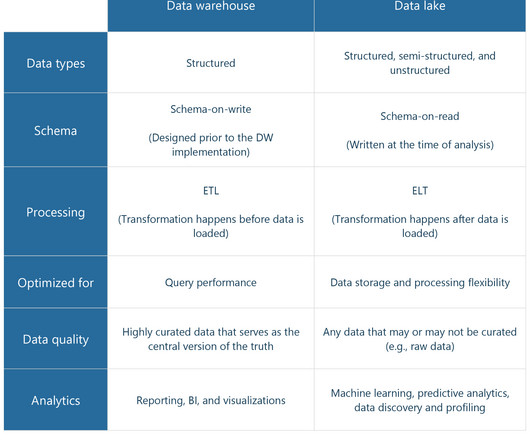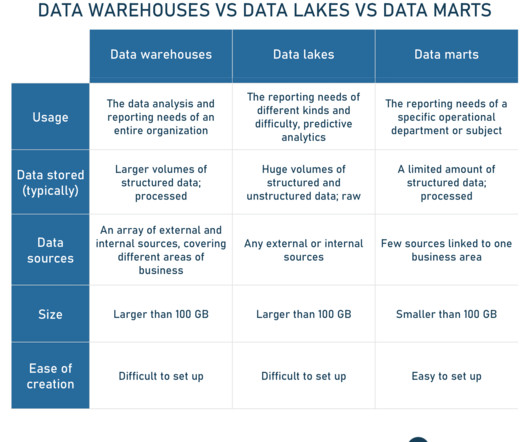Less is More: The Benefits of Streamlining Your Data Integration Workflow
Datavail
SEPTEMBER 8, 2022
According to an IDG survey , companies now use an average of more than 400 different data sources for their business intelligence and analytics processes. What’s more, 20 percent of these companies are using 1,000 or more sources, far too many to be properly managed by human data engineers. Conclusion.















Let's personalize your content